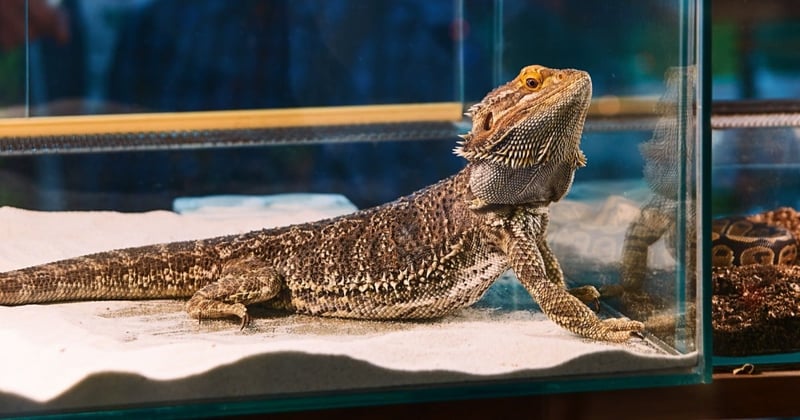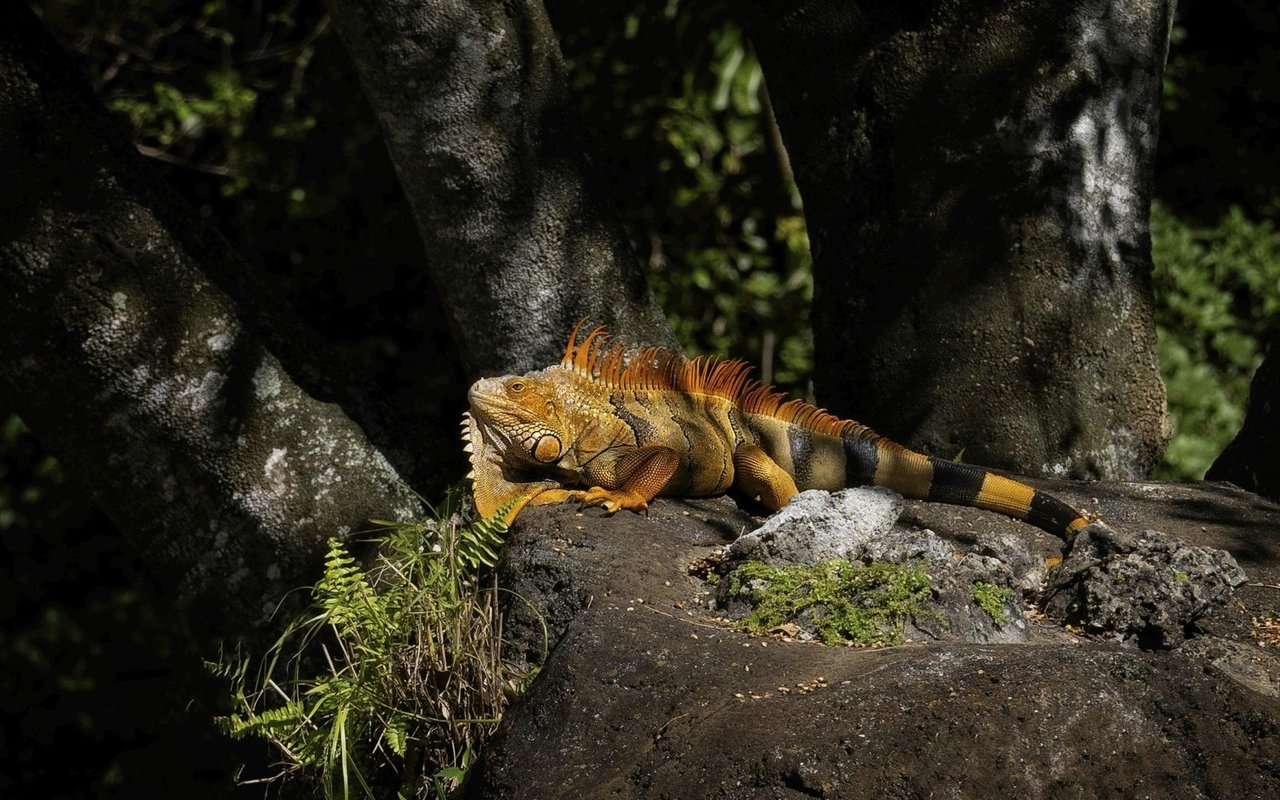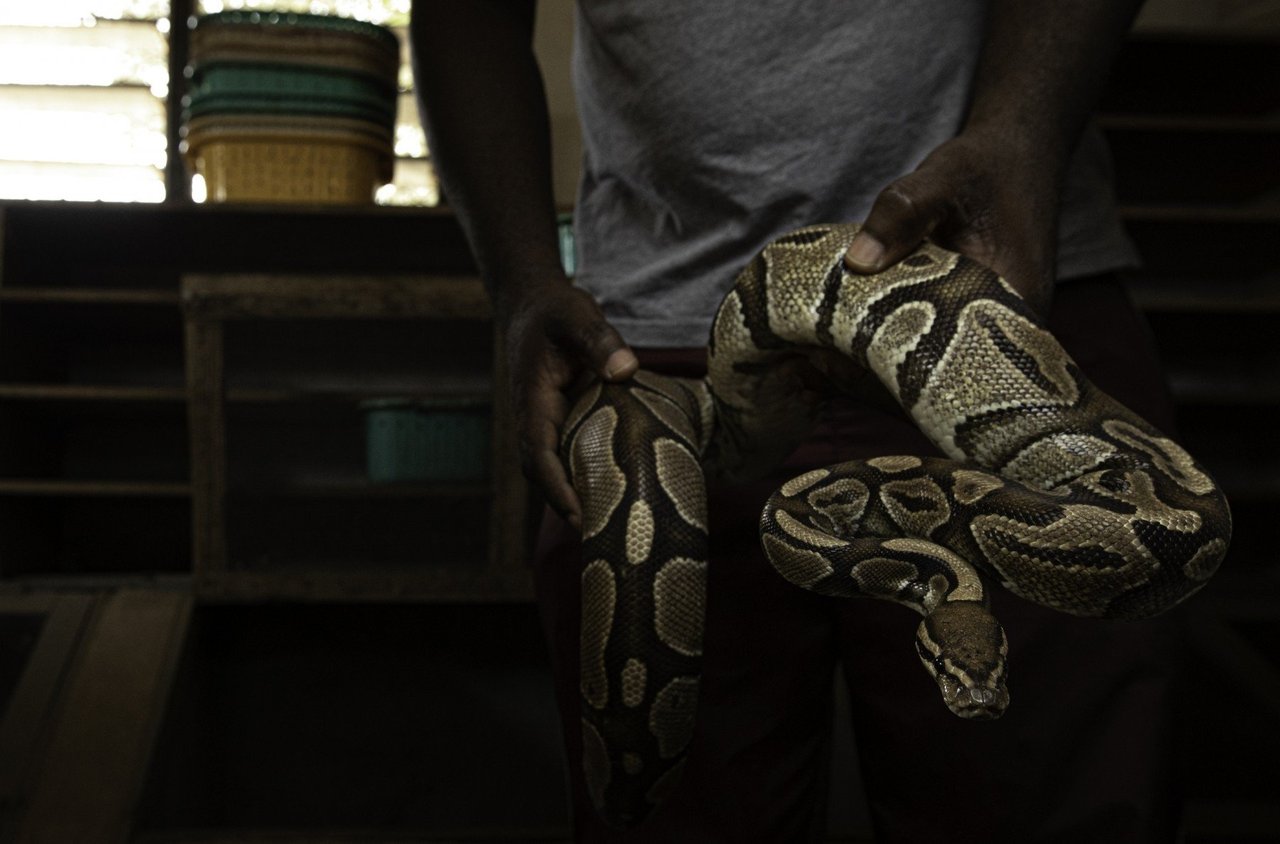
PetSmart’s new campaign “Anything for Pets” is anything but good for wild animals.
Earlier this month, PetSmart unveiled “Anything for Pets,” a new campaign that focuses on the love people have for their pets. In the accompanying video of people singing to their animals, dogs and cats are heavily featured, but wild animals, including a lizard, snake, and parrot, also appear. It’s no surprise that PetSmart is pushing the idea that wild animals can be pets—the company sells an assortment of reptiles and amphibians at stores across North America. But this campaign is anything but good for animals. Here’s why.
1. It Tells Consumers that Wild Animals are Pets
Wild animals such as reptiles and amphibians can’t thrive in captivity. Animals must be able to engage in natural behaviors to be healthy and happy. But in captivity, behaviors like exploring, foraging, or even regulating their body temperature are restricted. For example, veiled chameleons, currently sold by PetSmart, are arboreal lizards. Arboreal animals spend most of their lives in the tree canopy, bushes, and shrubs. They are shy by nature and would avoid human contact if given a choice. They don’t belong in cages.
PetSmart customers agree. Ninety percent of customers believe that reptiles and amphibians should not be kept as pets because they suffer in captivity.1
A large iguana basks in the sunlight on a rock.
2. These Wild Animals End Up in Shelters
PetSmart is encouraging customers to adopt dogs and cats while at the same time selling wild animals. And by marketing reptiles and amphibians as “easy to keep” and “beginner” animals, the company sends the message that these animals require minimal care. Forty-seven percent of first-time buyers spend a few hours—or none at all—researching prior to buying a wild animal, and 43% bought their first wild animal on a whim.2
First-time pet parents are often completely unprepared for the level of care that reptiles and amphibians need. The result is that animals are surrendered to shelters that, in turn, struggle to find appropriate homes.
3. It Disrupts Ecosystems
Other unwanted wild pets don’t even make it to shelters, instead, they’re abandoned into unfamiliar habitats. Some animals will die quickly, killed by predators or from starvation. Other animals adapt and breed, altering and threatening local ecosystems. Non-native animals can introduce new diseases and compete with native wildlife for food and habitats.
4. It Drives the Wildlife Trade
Selling reptiles and other wild animals as pets contributes to the destructive wildlife trade. Whether bred in captivity or wild-caught, animals suffer at every stage of the trade. Unfortunately, animal welfare and conservation do not appear to be priorities for PetSmart. PetSmart sells multiple reptile and amphibian species, including ball pythons, who are threatened in the wild.
World Animal Protection’s report, Suffering in Silence, revealed millions of ball pythons have been exported from Africa over the last 40 years. The snakes are sold as pets in stores or reptile expos or used for breeding. The US is the largest importer of ball pythons from West Africa, and among the 9 million households with an exotic pet, an estimated 14.6% have snakes.
Selling these animals as pets contributes to their decline by increasing demand and thus the pressure to take animals from the wild.
Ball python
5. Increases Zoonotic Disease Risk
Reptiles and amphibians can make humans seriously ill. Oftentimes, the infected animal doesn’t appear sick but is still shedding bacteria. The most common diseases associated with these animals are caused by bacteria such as Salmonella. Salmonella can cause severe illness, or even be deadly, in certain vulnerable populations, including pregnant individuals and young children. Yet many of PetSmart’s customers are families.
PetSmart’s new brand campaign manipulates the love that people have for animals to increase company sales. By pushing the false narrative that reptiles and other wild animals make good pets, PetSmart is deceiving compassionate people into condemning a wild animal into a lifetime of misery.
If we want to do “anything for pets,” then the best thing we can do is to leave wild animals out of the equation. You can help protect wild animals from suffering. Tell PetSmart to stop selling reptiles and amphibians.
Sources:
1 2020 Flood market research commissioned by World Animal Protection
2 2018 Stratcom research commissioned by World Animal Protection

